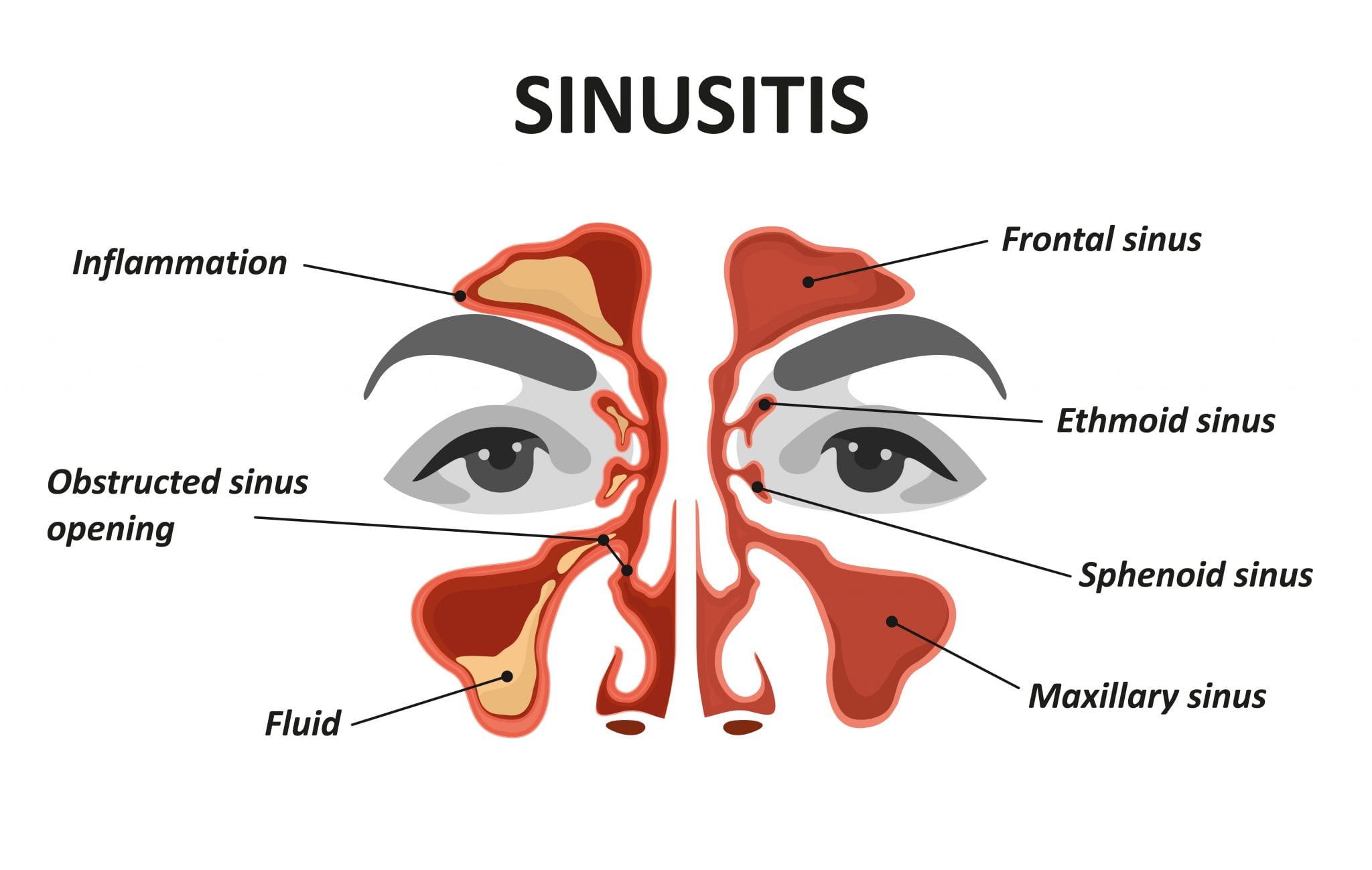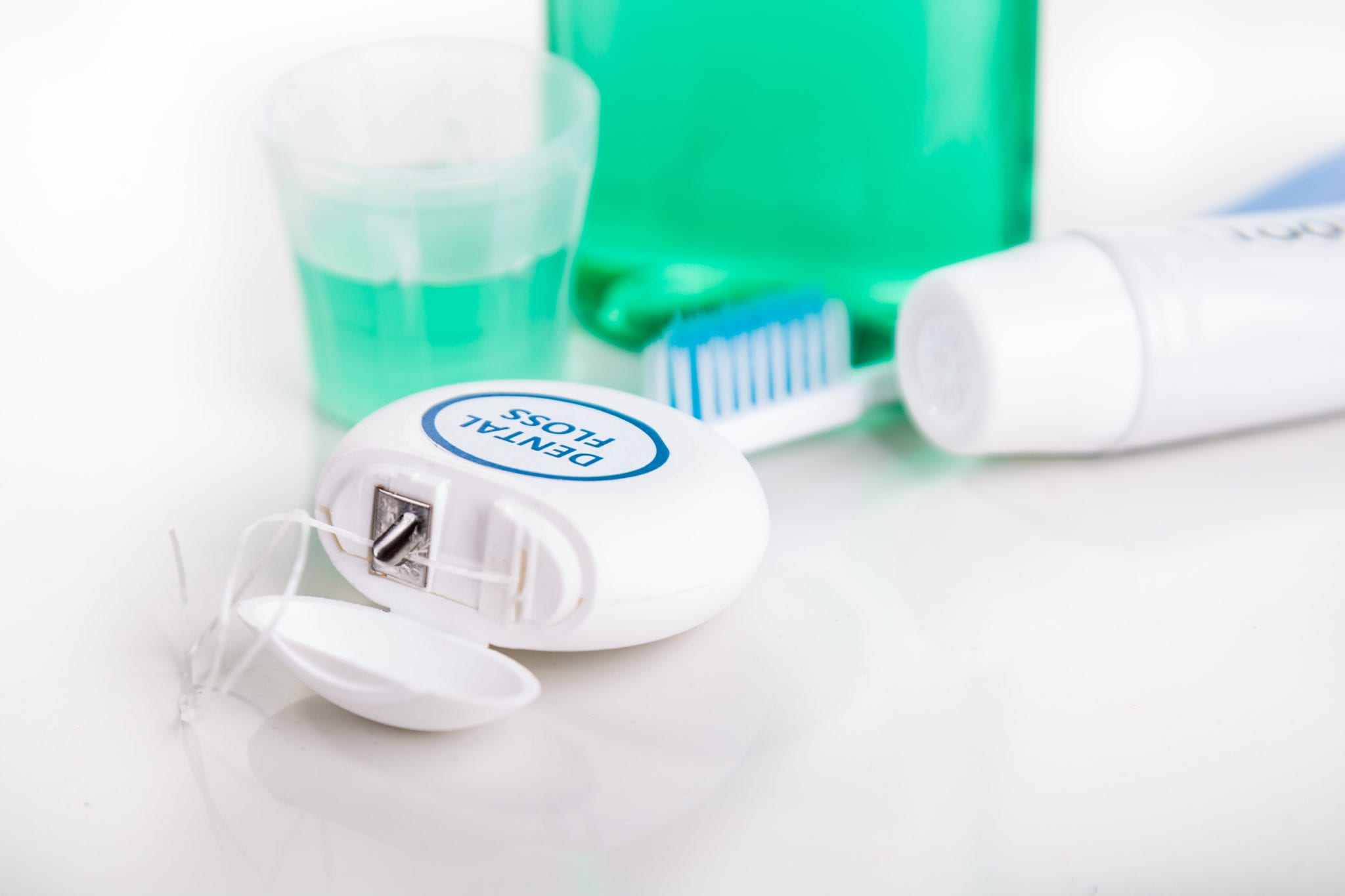
There’s a reason that proper oral health is an essential focus from our earliest memories. The effects of poor oral health extend far beyond just stained teeth.
In fact, poor oral health can lead to consequences that are quite serious — some seemingly unrelated to your mouth. One of these consequences? Persistent sinus issues.
Because of the relation to the sinuses and your back teeth, it’s possible to have severe sinus issues due to poor oral health. This can include recurring sinus infections and severe sinus pain. For these reasons, it’s important to understand the connection between the sinuses and oral health.
The Connection Between Oral Health and Your Sinuses
The sinuses are a system of interconnected hollow cavities connecting your ears, nose, mouth, and throat. Scientists don’t know the exact reason we have sinus cavities, though a few different ideas have been put forward.
One thing that we do know is that the sinuses are highly susceptible to infection. Because these are hollow chambers lined with mucus, they are the perfect breeding ground for bacteria.
The Maxillary Sinuses
The lower sinuses, called the Maxillary Sinuses, are located directly behind the cheekbone just above the jaw and to the rear. A common anatomical feature that many people have is back molars with roots that sit too close to or protrude into the Maxillary sinuses.
This is usually not an issue unless these molars become infected. When this happens, it can cause major issues in the Maxillary Sinuses. This can lead to severe and recurring infections leaving you in pain, potentially off and on for years.
Undiagnosed Tooth Infection
Quite often, the primary cause of the issue, the infected tooth, goes undiagnosed. Instead, many doctors will attribute the infection to the sinuses and will prescribe antibiotics as a treatment. Because the cause of the infection (the infected tooth) is still present, the sinus infections will keep occurring. The only treatment for this is to have the infected tooth removed.
Though the above issue of the Maxillary Sinuses being infected is one of the most severe, it isn’t the only connection between your sinuses and your mouth.
Sinusitis and Tooth Pain

Your sinuses can actually be responsible for tooth pain. The main reason for this is the close proximity of the sinuses to the mouth and the nerves connected to your teeth.
One common issue is when the sinuses become inflamed, they can expand and cause pressure throughout your face. Inflamed sinuses and the subsequent pressure can further put pressure on dental nerves leading to tooth pain.
This cycle of inflammation and pressure is commonly referred to as sinusitis, an infection of the sinuses. Sinusitis usually begins when bacteria enter into the cavities. As the bacteria spread, it causes inflammation of the lining of the sinus along with the familiar congestion.
You may experience problems when doing basic things such as moving your mouth to talk and eating. Because the pain is caused by pressed nerves, moving your mouth can make the pain worse as it presses the nerves more against the inflamed sinus.
Halitosis (Or Bad Breath)
Stopped up sinuses can lead to what is commonly referred to as “mouth-breathing.” It’s simply when someone has to breathe from their mouths instead of through their noses.
Breathing through the mouth is shown to have a number of ill effects on oral health including drying out the mouth. Saliva helps to kill off bacteria which can affect your teeth leading to poor oral health.
Dry mouth can lead to complications such as tooth decay and bacteria buildup within your mouth. This buildup of bacteria often leads to bad breath, also known as halitosis.
To help combat the effects of dry mouth, it is important to stay hydrated by drinking plenty of water. This not only keeps your teeth from drying out but also helps promote saliva production.
Bad breath can also occur from a postnasal drip from sinusitis. This is when mucus builds up in the back of the nose and throat and drips down. Bad breath from postnasal drip can be particularly troublesome as simply brushing your teeth isn’t guaranteed to get rid of the issue.

Remember that proper oral hygiene is important not just for keeping your mouth clean and fresh, but for your overall health. Your sinuses are just one part of your body that can be affected by poor oral hygiene.
For this reason, maintain proper oral health habits such as regular brushing and flossing. If you do experience symptoms such as tooth pain or bad breath, you need to get in touch with a dental professional as soon as possible.






